4 or Higher ACEs Score
Your Results
When you score 4 or higher on your ACEs assessment, the negative impacts on your health and wellness outcomes is serious. Over half of women and more than a third of men in this score range report having faced chronic depression, with nearly a third of all adults in the range reporting at least one suicide attempt.
In addition to the serious mental health challenges you may face, alcohol and other drug use disorders and physical health issues are a significant risk for people who score a four or higher.
Adults who score a four or higher are also at a seriously heightened risk of committing domestic violence at some time in their life.
BUT your destiny is not cast in stone. You can take steps now to help your body heal, help your brain heal, and improve some of your long-term health outcomes.
The research shows that many people can overcome adverse childhood experiences by seeking Positive Childhood Experiences (PCEs). Studies show that the body can actually heal some of the damage from toxic childhood stress. The sooner you start building up these PCEs, the better. Surrounding yourself with supportive friends who care about you and your wellbeing. Forming strong connections to affirming adults in your community has also been shown to help your brain and your body heal. Affirming adults could include a teacher, a neighbor, a coach, or a religious leader. By adding positive and affirming people in your daily life, you can build resiliency to the adverse experiences you have had. Your brain and your body will literally heal themselves, reducing the likelihood of those negative health and wellness outcomes.
If at any point you find yourself overwhelmed and needing assistance, please reach out to Crisis at (262) 657-7188.
A trained professional will answer your call 24 hours a day, 7 days a week.
Now What?
You can take steps now to help your body heal, help your brain heal, and improve some of your long-term health outcomes. If you are willing to work hard on it, you can develop your resilience and change your life. The American Psychological Association offers four key areas to focus on as you build up your resilience:

Build Your Connections
- Prioritize relationships
- Join a group

Find Purpose
- Help others
- Be proactive
- Move toward your goals
- Look for opportunities for self-discovery

Foster Wellness
- Take care of your body
- Practice mindfulness
- Avoid negative outlets

Embrace Healthy Thoughts
- Keep things in perspective
- Accept change
- Maintain a hopeful outlook
- Learn from your past
Research shows that the single most important thing you can do to improve your path is to surround yourself with people who will consistently support you, who will listen to you, and who will validate your feelings. Another critical step is to connect with a trained counselor. This could be a school counselor, a licensed therapist, or a mental health clinician. You did catch a lucky break because there many excellent resources available to you in our community.
Positive Childhood Experiences Assessment
You cannot undo or change your ACEs score. BUT you can improve your long-term health and wellness destiny by gaining resilience with Positive Childhood Experiences (PCEs).
Positive Childhood Experiences questions:
Before your 18th birthday, how often did you:
- Feel able to talk to their family about feelings
- Feel their family stood by them during difficult times
- Enjoy participating in community traditions
- Feel a sense of belonging in high school
- Feel supported by friends
- Have at least two non-parent adults who took a genuine interest in them
- Feel safe and protected by an adult in their home

Do you have more questions or just want to read more about your score and what it means? Numberstory.org is a fantastic source of easy-to-understand information by one of the country’s leading experts in ACEs, Dr. Nadine Burke Harris. We definitely encourage you to learn more and control your destiny!
So why do we care about PACEs?
We want to help everyone take control of their destiny to live healthy and satisfying lives. To do that we need individuals, organizations, communities, and systems to understand the impact they have on kids’ life paths. So we need to talk about PACEs (both positive and adverse childhood experiences) and how they intertwine throughout all of our lives.

